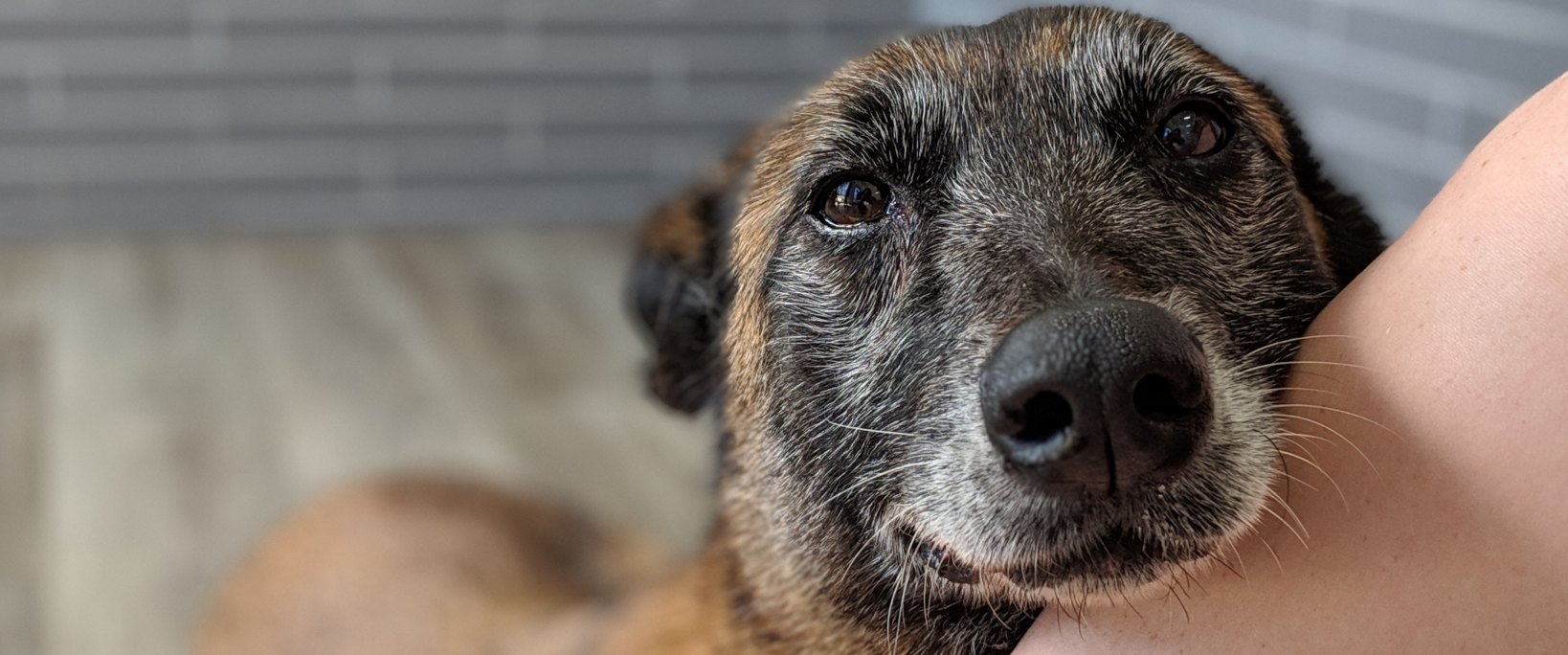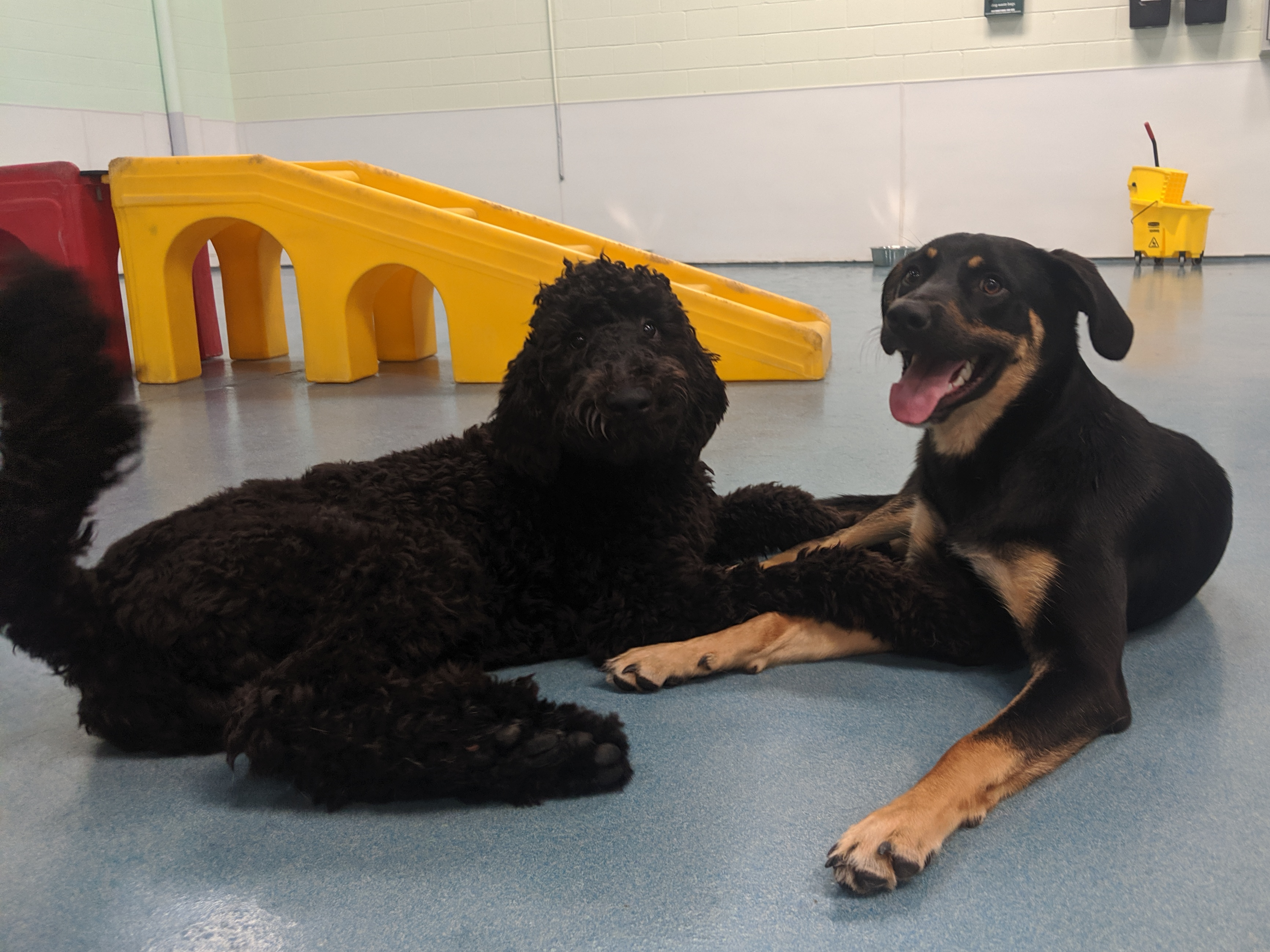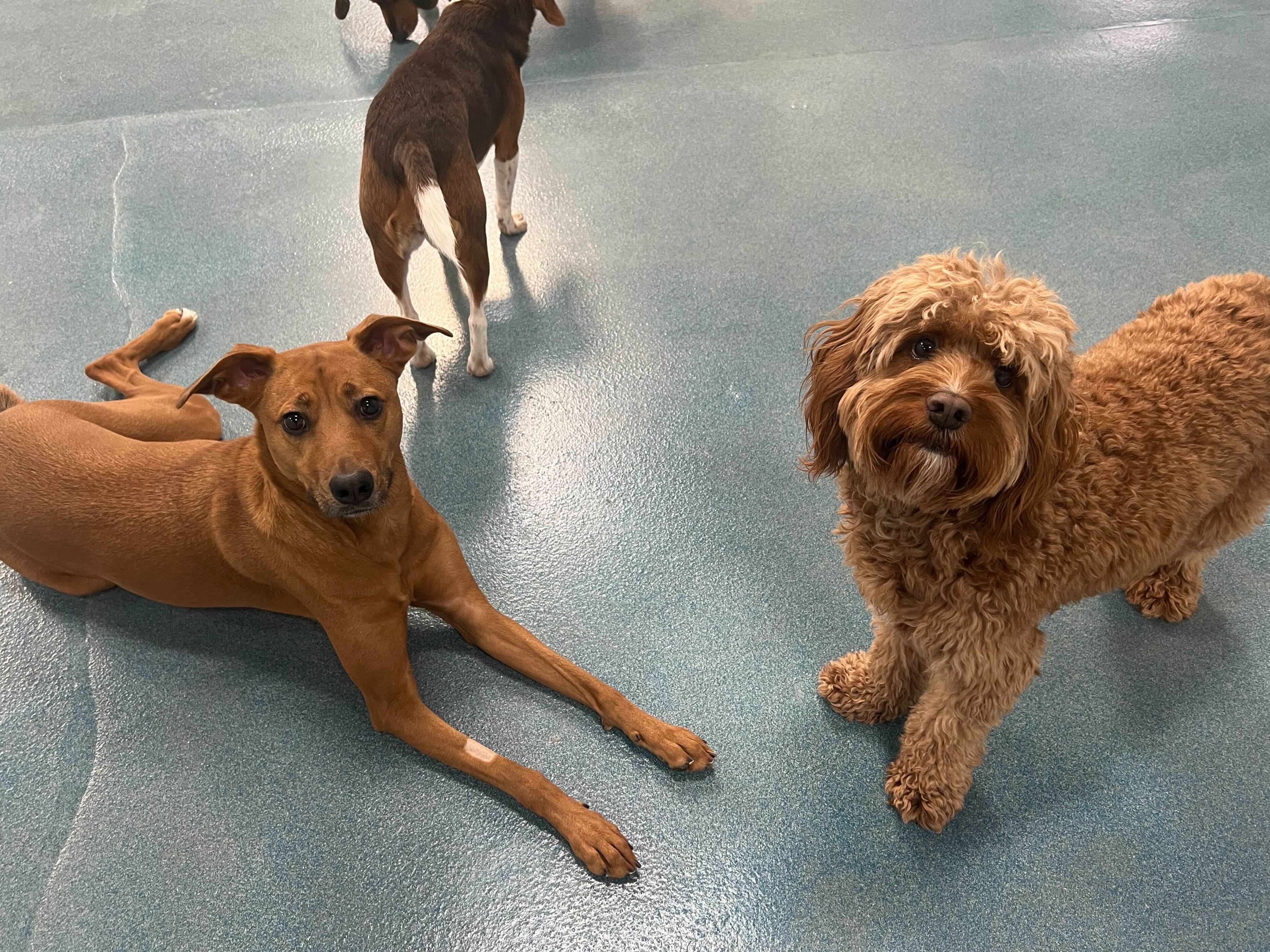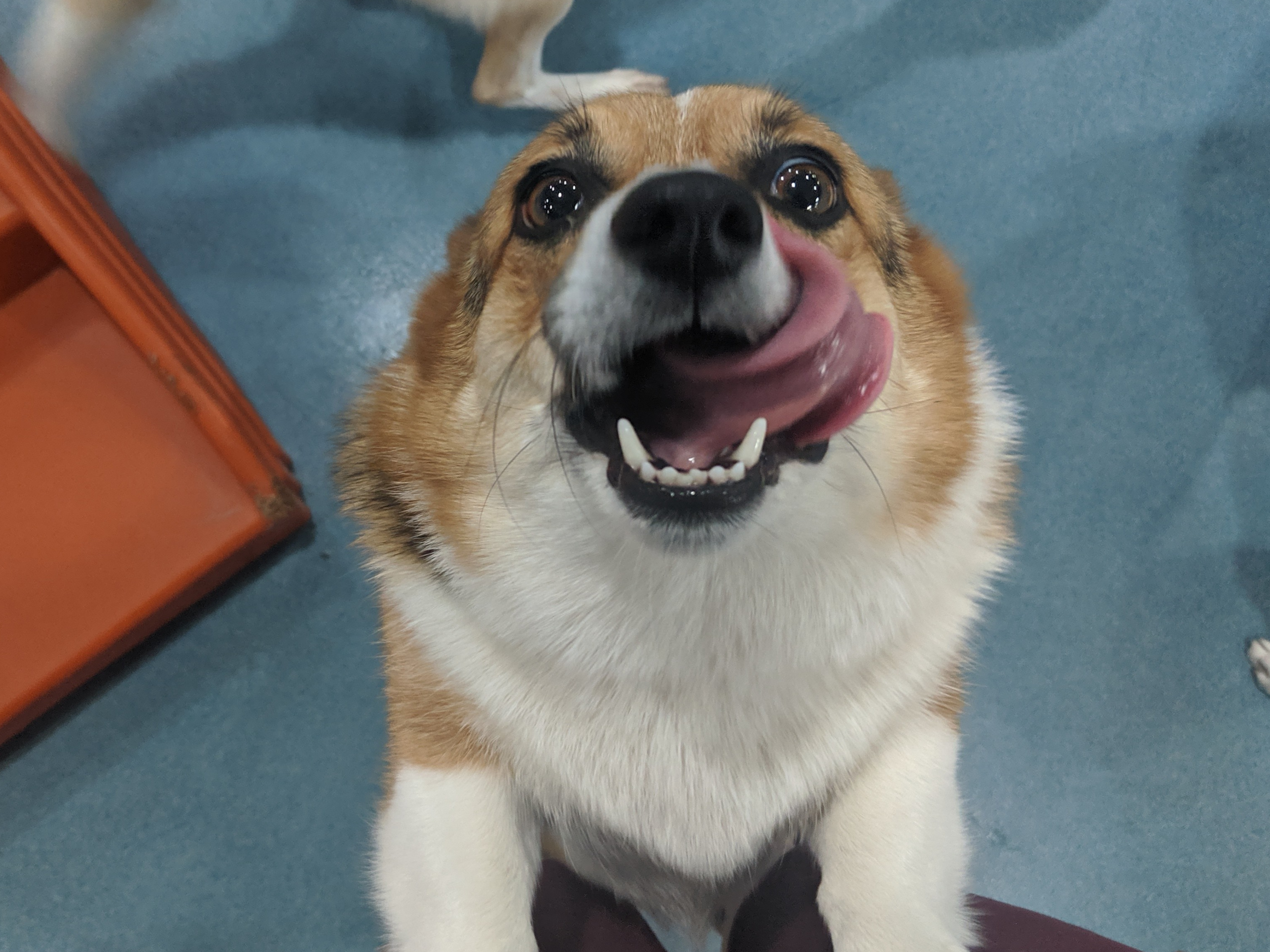How Do You Know If Your Dog Likes Doggy Daycare?

As the world shifts, and our lives get busier, the concept of doggy daycare has shifted from being a luxury to a necessity for many pet parents.
In bustling urban areas and serene suburbs alike, these dogs’ days away are gaining popularity. It’s not just about ensuring our pets are safe when we’re away, but also about guaranteeing they’re having fun.
But the question we often find ourselves pondering is: how to know if your dog likes daycare?
While our fur buddies might not converse in our language, they have ways of expressing themselves. At 24 Hour Dog Daycare, we’ve grown adept at understanding these expressions.
Let’s dive into it.
Signs that Indicate Your Dog Likes Dog Daycamp
Our dogs might not send us text updates, but they indeed showcase signs of their feelings.
Positive Behaviors at Drop-Off
If mornings have turned into a whirlwind of energy with your pup jumping around, it’s a hint.
Their excitement at nearing our dog daycamp, demonstrated through tail wagging and eager body language, is the most transparent feedback they can give.
Social Interactions with Other Dogs
The playground is the best place to gauge their feelings.
Do they have favorite buddies? Do they initiate play, or are they always the respondent? Positive interactions are not just about play; it’s about the growth of your dog’s social confidence.
Enthusiasm During Activities and Playtime
If they’re the first to join a game or show interest in toys, it’s like a kid in a candy store—pure bliss. Activities aren’t just physical; they’re a blend of mental and emotional stimulation, which, when enjoyed, translates to a very content dog.
Positive Feedback from Daycare Staff
Our staff members are passionate dog lovers trained to understand canine behavior. Their observations offer insights into your dog’s experience. Additionally, regular feedback will help piece together the complete picture.
Understanding Your Dog’s Personality and Preferences

Recognizing that every dog is as unique as every human is crucial. Their personality shines in different settings.
Knowing Your Dog’s Temperament
Is your dog the kind to strike a conversation at a party or the one to sit back and observe? Understanding their social tendencies, energy levels, and overall vibe can make a world of difference in interpreting their daycare stories.
Assessing Your Dog’s Socialization Skills
From the rambunctious puppy stage to the wise senior phase, dogs change. And so do their play preferences. Their comfort levels, adaptability, and responses give us a glimpse into their social minds.
Embracing the benefits of socialization and knowing where your dog stands is crucial.
Considering Your Dog’s Exercise Needs
While a Golden Retriever might need vast open spaces to run around, a Pug might be content with a short game of fetch.
Each breed, and more importantly, each dog, has specific needs. Ensuring these are met is central to a positive daycare experience.
Communicating with Your Dog

Despite not sharing a language, the bond between a pet parent and their dog is profound. This connection can become a vital communication channel.
Find out what the top factors are for a happy dog!
Recognizing Subtle Cues and Body Language
A drooping tail, perked ears, or even a particular bark – all these are paragraphs in your dog’s diary.
By understanding these, you can gain valuable insights into their emotional world.
Paying Attention to Behavioral Changes

Dogs, like humans, have good days and bad days.
Recognizing patterns, sudden shifts in behavior, or even subtle changes will guide your approach towards their daycare experience.
Trying Out Dog Daycamp and Assessing Your Dog’s Experience
Before you commit long term, it’s a wise idea to dip your toes into the water.
A trial run can provide firsthand experience of how your dog perceives the environment.
Alternatives to Doggy Daycare if It’s Not a Good Fit
Despite our best intentions and efforts, not every place is a match made in heaven for every dog.
Acknowledging this and seeking alternatives will lead to better solutions. This ranges from professional dog walking sessions, pet sitting, organizing doggie playdates, or enriching their environment with interactive toys and challenges.
New Experiences Can Be Scary for Dogs…But Daycare Doesn’t Have to Be

Stepping into unknown territories feels daunting sometimes. But with a sprinkle of patience, understanding, and love, new experiences transform into exciting adventures.
At 24 Hour Dog Daycare, we prioritize the well-being of dogs in our care, with spacious play areas and private suites. Our trained staff is attentive to every dog’s body language and signals, ensuring a safe and happy environment.
Need a doggy daycare? Make a reservation with us today.
Frequently Asked Questions
How long should I give my dog to adjust to a new daycare environment?
Just as humans need time to acclimate to a new environment, dogs do too. Typically, it can take a few days to a couple of weeks for a dog to feel entirely at ease in a new setting like a doggy daycare. However, every dog is unique. Some might dive right into the fun on day one, while others might need a bit more time to observe and adjust.
It’s essential to maintain open communication with the daycare staff, as they provide valuable insights into your dog’s daily experiences and progress.
My dog seems exhausted after returning from daycare. Is this normal?
Absolutely! A day at dog day camp is filled with activities, playtimes, and social interactions. Just as we might feel tired after a day of socializing and engaging in activities, dogs too can feel worn out after a stimulating day at the daycare. This isn’t a bad sign. It means they’ve had a full day of physical and mental engagement.
However, if you notice any signs of distress or extreme fatigue, it’s always a good idea to discuss it with the daycare staff and possibly consult your vet.
Can I visit the daycare with my dog for the first time before leaving them for the day?
We wholeheartedly recommend this! Making an initial visit allows both you and your dog to get a feel of the environment. You can observe how the staff interacts with the pets, check out the play areas, and see the general vibe of the place.
It’s an excellent opportunity for your dog to familiarize themselves with the new surroundings while still having the comfort of you being around.
How do daycares handle dogs with special needs or specific behavioral issues?
A reputable doggy daycare will always prioritize the individual needs of every dog. If your dog has special requirements, whether dietary, medical, or behavioral, it’s crucial to communicate these clearly with the staff.
What if my dog doesn’t get along with another dog at the daycare?
Dogs have their personalities and sometimes clashes can occur. A professional daycare will always have measures in place to handle such situations.
This might involve separating the dogs, introducing them gradually under supervision, or, if necessary, adjusting their schedules to avoid any conflicts. The safety and well-being of the dogs are always the top priority.


